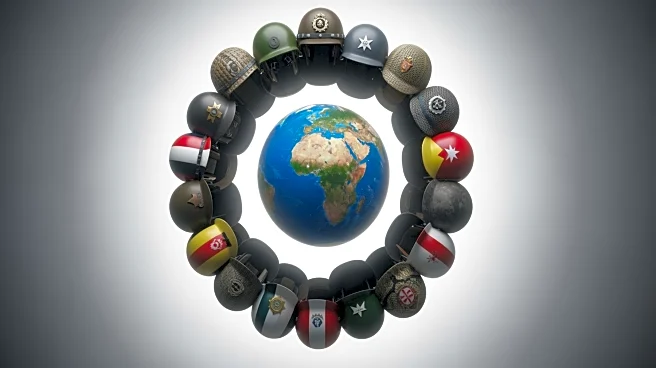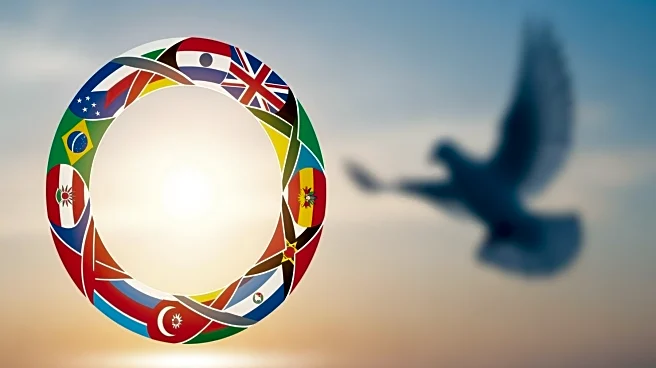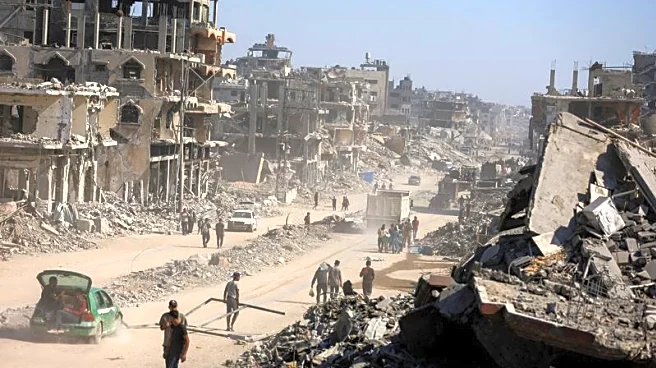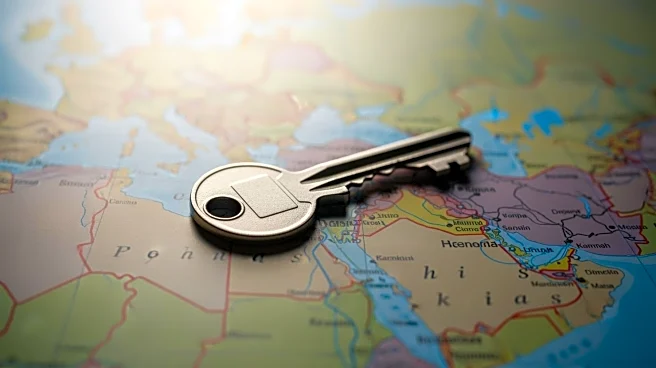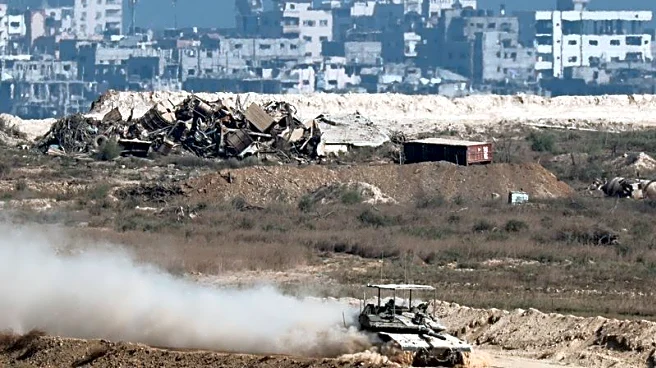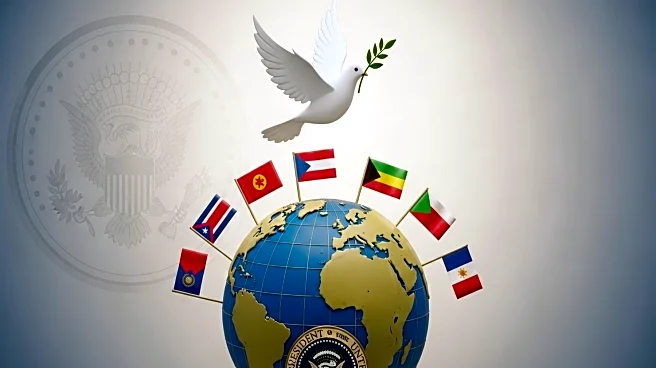What's Happening?
A U.S.-led coordination center located in Israel is expected to become operational in the coming days to oversee the implementation of the ceasefire agreement in Gaza. The center will coordinate security,
aid, and rebuilding efforts in the region, following two years of conflict. It will be led by a U.S. three-star general, with a foreign deputy equivalent to a two-star officer. The center is strategically placed northeast of Gaza, ensuring accessibility to officials from various countries involved in the rebuilding process. President Trump has deployed 200 U.S. troops specializing in logistics and security to support the center's operations. The initiative involves collaboration with partner nations, private sector entities, and non-governmental organizations.
Why It's Important?
The establishment of the coordination center is crucial for managing the complex logistics required to rebuild and secure Gaza after prolonged conflict. It represents a significant international effort to stabilize the region, with contributions from countries such as Indonesia, Egypt, the UAE, Qatar, and Azerbaijan. The center aims to facilitate the distribution of food and aid, addressing humanitarian needs while ensuring security. This development could lead to improved living conditions for Gaza's residents and foster regional stability. The involvement of multiple nations highlights the global commitment to peace and reconstruction in the Middle East.
What's Next?
The coordination center is expected to reach initial operational capability soon, marking the beginning of its activities. Discussions are ongoing regarding the formation and operation of an international security force within Gaza. The center will continue to work on logistics and planning, with further efforts anticipated as the International Stabilization Force is constructed. The success of this initiative may influence future diplomatic and humanitarian strategies in the region, potentially setting a precedent for international cooperation in post-conflict reconstruction.
Beyond the Headlines
The coordination center's operations may have long-term implications for international relations and peacekeeping strategies. It could serve as a model for similar efforts in other conflict zones, emphasizing the importance of multinational collaboration. The initiative also raises questions about the ethical responsibilities of nations in post-conflict reconstruction and the role of military forces in humanitarian efforts.


